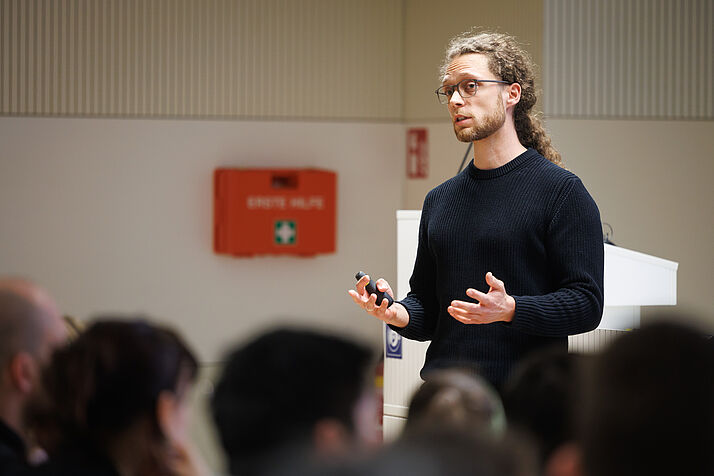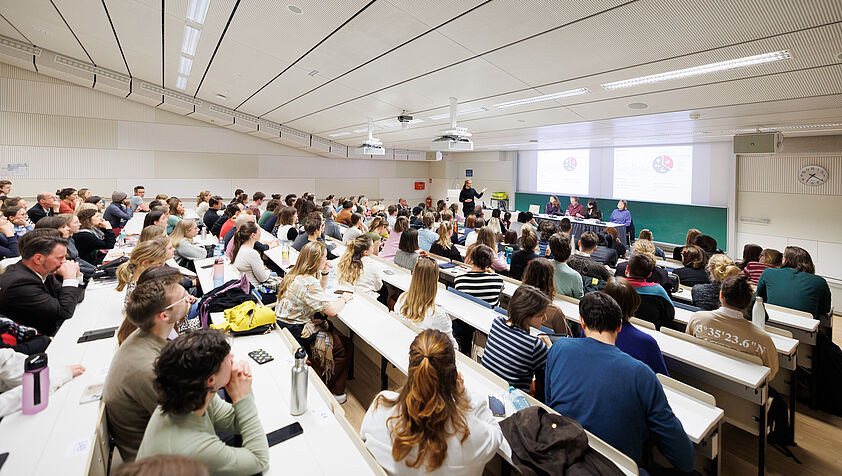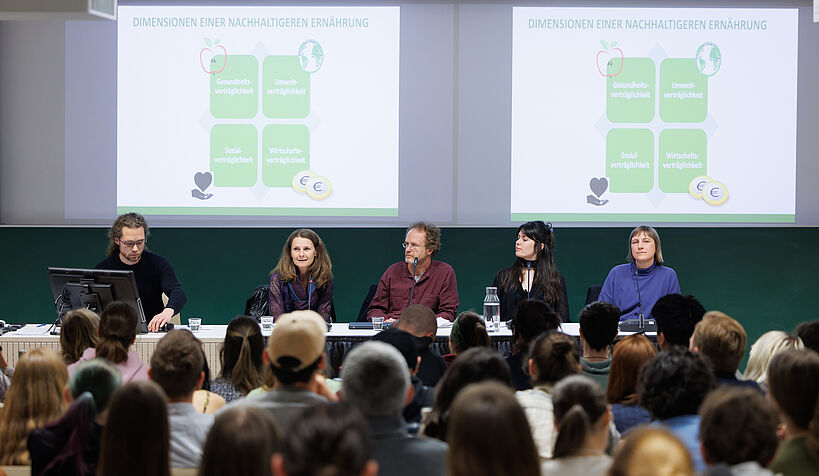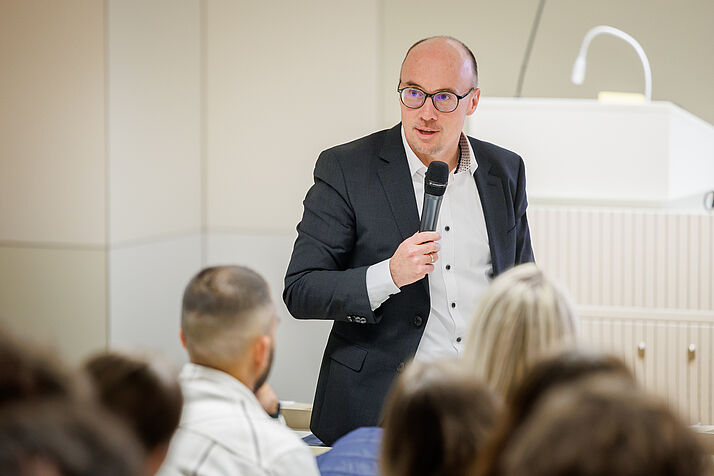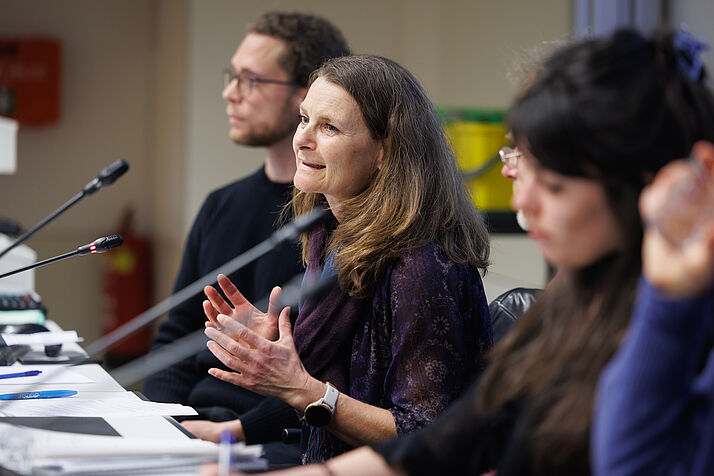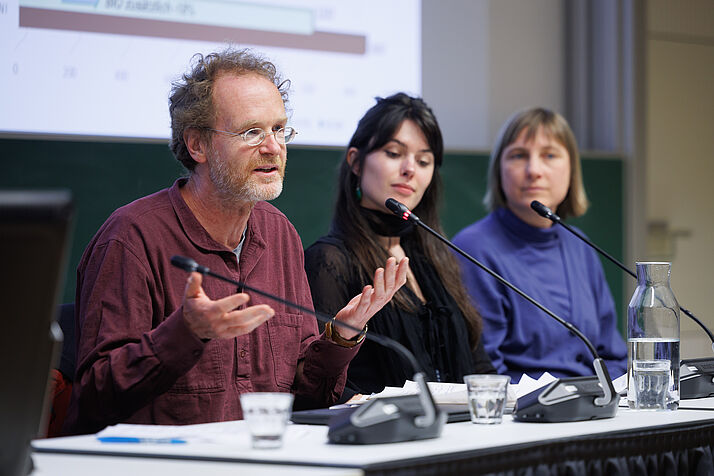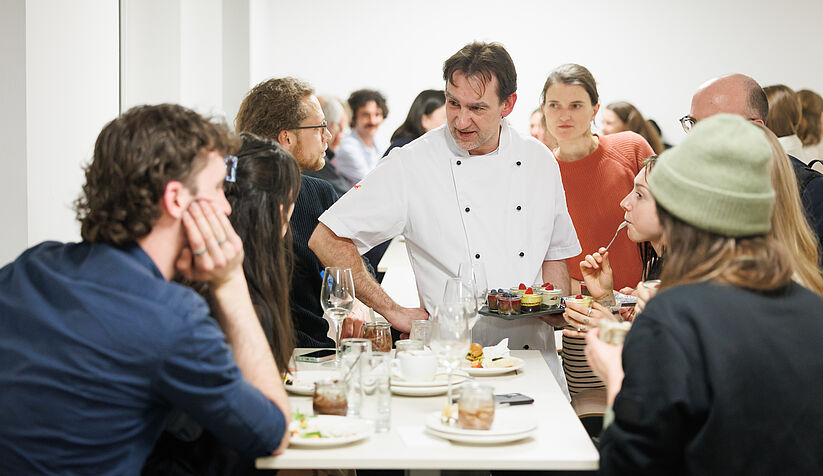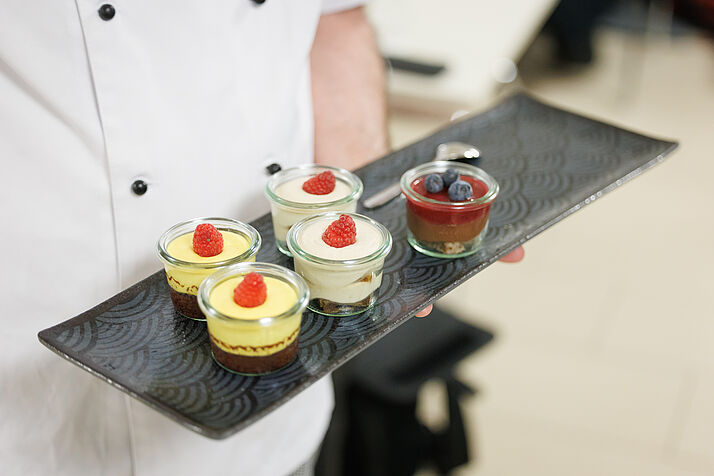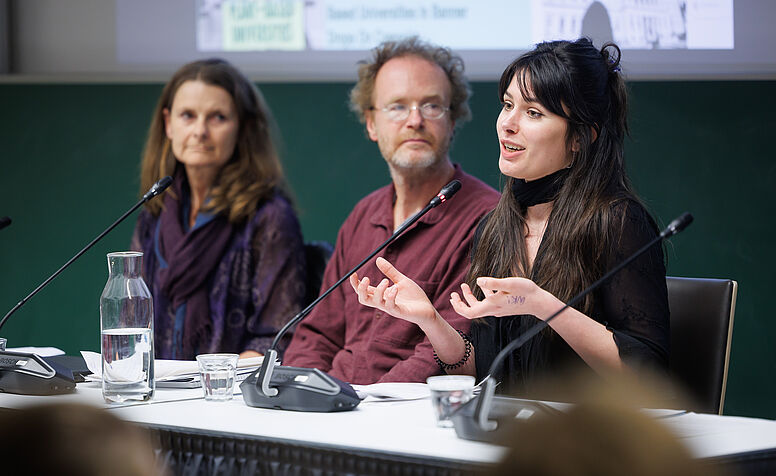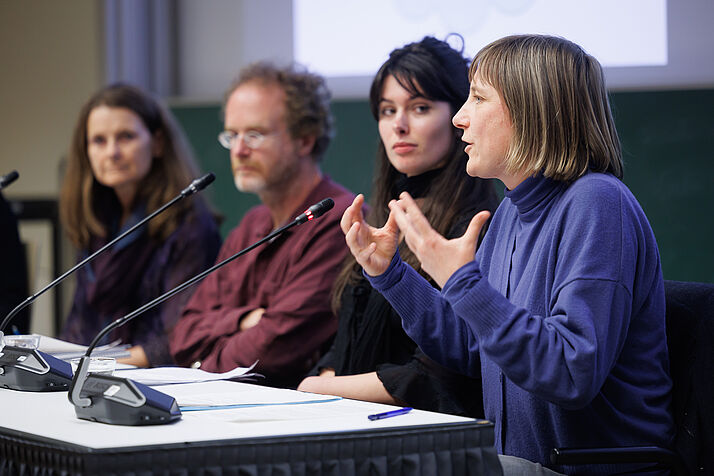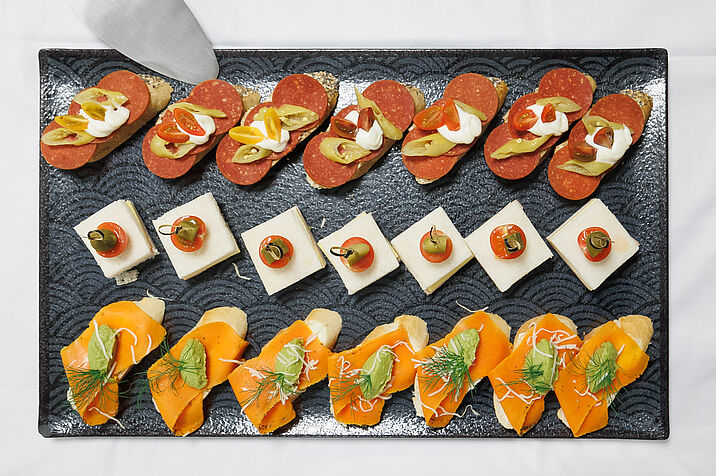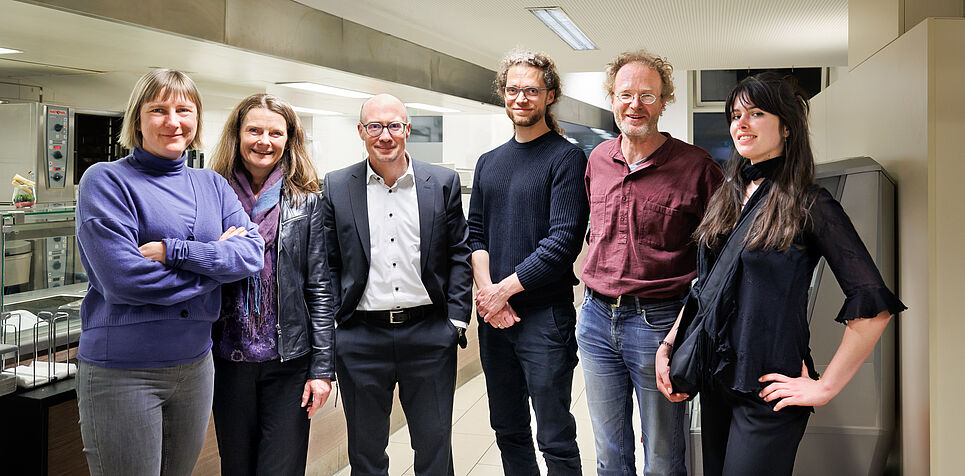Follow-up report: Panel discussion on sustainability and nutrition
How good food for all strengthens climate justice.
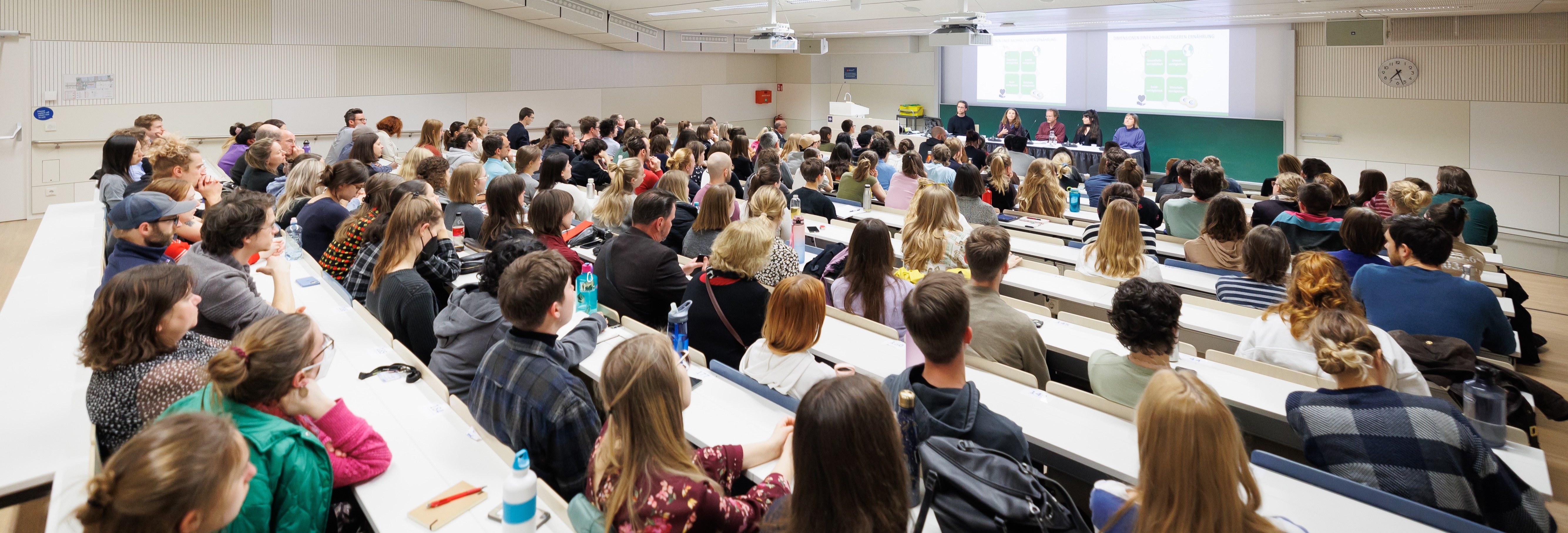
Days before the event, the places for the panel discussion "Nutrition and sustainability: How good food for all strengthens climate justice" were already fully booked.
The long waiting list also highlighted the enormous interest in the topic. On April 18, around 200 students, staff and members of the interested public gathered in Lecture Hall 6 on Oskar-Morgenstern-Platz to listen to the panel discussion and actively participate in the discussion.
Vice-Rector Nikolaus Hautsch opened the discussion and gave an outlook on the University of Vienna's sustainability initiative. He emphasized the problematic role of the generally excessive consumption of meat for the environment, biodiversity and CO2 emissions as well as the responsibility of the university and the need to involve it in sustainability efforts. Nils Carqueville, the evening's moderator and coordinator of the Food Working Group in the Sustainability Advisory Board of the University of Vienna, established the scientifically proven link between the climate crisis and food, thus initiating the discussion: around a third of all greenhouse gases come from the food system, the majority of which is attributable to animal farming.
The panel started the discussion with current perspectives on the food system from various disciplines. Nutritionist Petra Rust (University of Vienna) began by explaining the dimensions of a more sustainable diet. Thomas Lindenthal, Senior Scientist at the Center for Global Change & Sustainability (BOKU), shed light on the scientific aspects and the different greenhouse gas emissions of different diets. Sophie Wenzel, Campaign Manager of Plant-Based Universities, in turn highlighted previous successes towards more sustainable catering at universities and reported on students' demands for sustainable improvements to the catering on offer. Christina Plank, Senior Scientist at the Institute for Development Research (BOKU), delved deeper into social contexts and presented the latest findings on nutrition from the current APCC report.
The panel concluded by presenting different transformation approaches from the various disciplines and discussing the steps required to achieve a sustainable system. The various panel participants emphasized both the pioneering role of public catering facilities and universities and the effectiveness of social initiatives to promote change. There was a strong consensus among all experts on the panel that the university has a responsibility, for scientific and social reasons, to work vigorously towards a meat-free and largely plant-based catering offer.
In the final discussion round, the audience was significantly involved and showed great interest in promoting sustainable nutrition at the University of Vienna. The panel's recommendations met with broad support. Questions were also raised on topics such as political feasibility, laboratory meat and the dairy industry. The discussion concluded with the closing remarks by Vice-Rector Hautsch, who asked the audience to take part in the upcoming survey on the canteen in order to highlight the positive contribution of the meat-free and therefore more sustainable canteen. It was emphasized that students, as the largest part of the university community, are an important driving force for transformation.
The Lia Cafeteria buffet impressively demonstrated how delicious, nutritious and varied plant-based dishes can be. A wide selection of starters, main courses and desserts impressed with their variety of flavors and quality, while guests and the panel took the opportunity to deepen their conversations.
We would like to thank the organizers, especially the members of the Sustainability Advisory Board, as well as the panel members and the visitors for this great evening!
Impressions of the panel discussion
Did you already know?
This panel discussion was the first event organized by members of the Sustainability Advisory Board, specifically the Catering Working Group. The working group has been working intensively for several months to promote awareness and opportunities for sustainable nutrition at the University of Vienna. A major initial success was the new lease of the more sustainable canteen at Oskar-Morgenstern-Platz. Communication measures were also implemented. Curious? You can find another article here.

